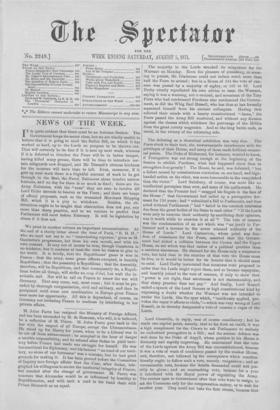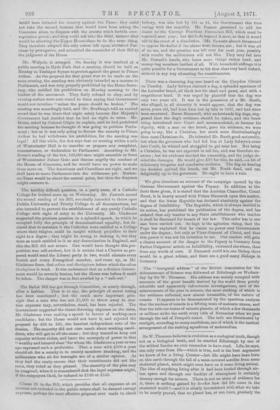Lord Granville, in reply, was of course conciliatory ; but
he made one capital point, namely, that so far from an insult, it was a high compliment for the Crown to ask Parliament to embody an undoubted prerogative in a Bill ; and the serious defence was well done by the Duke of Argyll, whose position in his House is distinctly and rapidly improving. He maintained that the vote of the Lords against the Army Bill was unconstitutional, because it was a vote of want of confidence passed by the weaker Howse, and, therefore, not followed by the consequence which constitu- tionally ought to follow such a vote, namely, resignation ; and an unreasonable vote, because the details demanded could not pos- sibly be given ; and an encroaching vote, because for a year it interfered with the Royal power of regulating the Army. The courses open to Government after that vote were to resign, to ask the Commons only for the compensation-money, or to wait for another year. They could not take the first Conroe, because that
would have irritated the country against the Peers ; they could not take the second, because that would have been asking the Commons alone to dispense with the statute which forbids over- regulation prices ; and they could not take the third, because that would be allowing the Upper Houseealone to do the same thing. They therefore adopted the only course left open, abolished Pur- chase by prerogative, and submitted the remainder of their Bill to the judgment of the House.

































